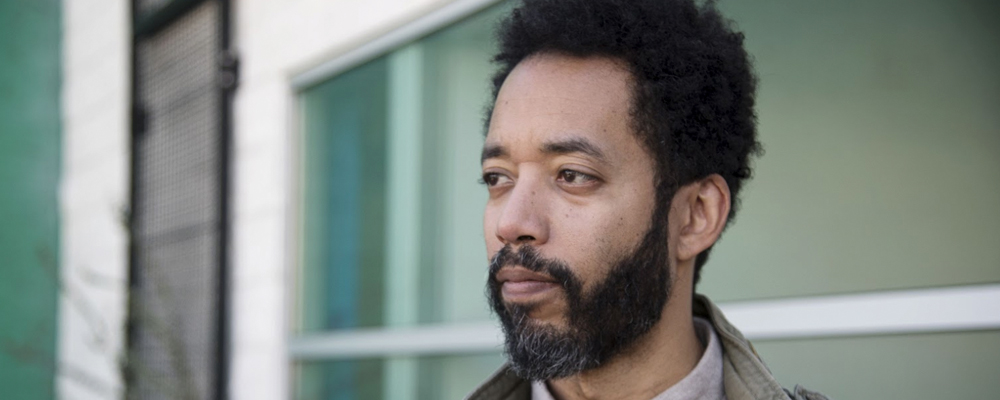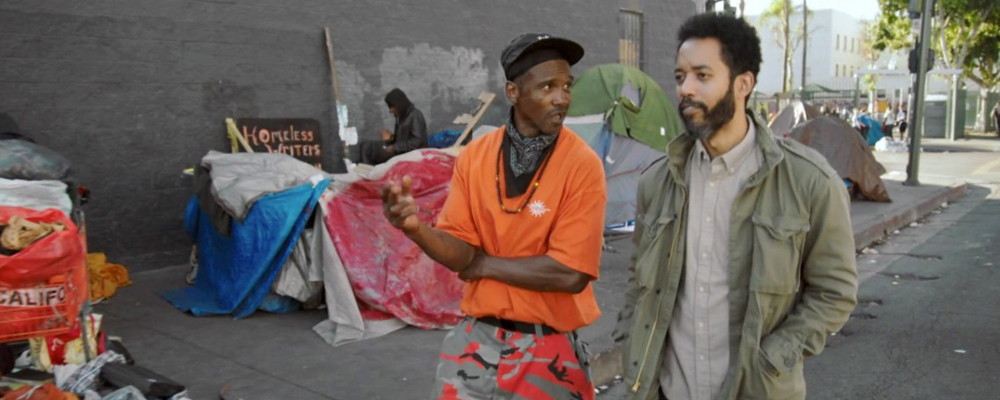‘Wyatt Cenac’s Problem Areas’ Tackles Important Issues With Smart Humor
Alci Rengifo
Wyatt Cenac has a lot to say about many important issues. His new HBO show, fittingly titled “Wyatt Cenac’s Problem Areas,” is a natural extension of his other gig as a writer and correspondent on “The Daily Show.” A stand-up with a conscience, Cenac uses light comedy to address blisteringly controversial issues or interesting social developments. The season premiere pokes fun at Elon Musk’s space travel dreams and closes with an in-depth discussion on police brutality. Cenac tells jokes but he doesn’t do gags. The humor works as a way of easing the audience into more challenging territory.
“I guess this is the part where I talk about Donald Trump and how we’re all f—ked, but you already know all that,” says Cenac at the start of the show. His real focus in the first section of this engaging pilot is a funny, unforgiving analysis of Elon Musk and the emerging culture of rich corporate types jumping on the space flight bandwagon. Cenac pulls apart the comments of figures like NanoRacks CEO Jeff Manber. “These rich guys aren’t just exploring, they’re planning to leave,” warns Cenac, suspicious that the mega rich would dare bring the plebs with them into the cosmos. There’s also a segment on the apparent benefits of making fuel out of human waste, complete with intriguing facts about the proximity between our waste and that of cows. The third section of the pilot is the lengthiest and most serious in tone. Cenac dives into the heated issue of police brutality and the continuous shootings of unarmed black men.
It is in this segment where the pilot truly finds its stride. Cenac finds a way to balance comedy and keen social commentary. With a charming Amazon Alexa nearby providing some comedic backup, Cenac goes through the long record of police shootings of unarmed individuals, warning that the state of policing will be a subject all ten episodes of the show’s first season will explore. After Cenac comments on the disturbing facts the numbers reveal, he steps aside and allows experts and activists to give the real insights. Besides, as he himself admits, he’s only attended protest marches to meet women (“I don’t do as well on Tinder as I’d like”). The case of Philando Castile, who was shot by a Minnesota police office and whose death made headlines due to the cell phone video captured by his girlfriend, gets particular attention. Chauntyll Allen of Black Lives Matter provides perceptive commentary on how the style of training officers go through might mentally prepare them to shoot on impulse. Other activists also chime in, as well as former officers, providing a strong discussion on the nature of policing in the United States.
Cenac still manages to find serious-minded humor when talking about this issue however. In one of the episode’s best segments he presents actual police training videos in which more emphasis is placed on keeping your cool with a dog than with people. One particularly disturbing example of chauvinistic police training techniques Cenac presents belongs to Dave Grossman. Grossman comes across as an odd, overbearing gung-ho instructor who tells audiences that the police “are at war,” praises the ability to kill without letting it get to you, and even hints that a killer instinct leads to better sex. We can only look aghast with Cenac, who reminds viewers that better formulas for good lovemaking can be found in a Sade song, “or eye contact.”
This is an engaging half hour of informative television based on the premise that important issues can be best discussed with some wit. As a host Cenac is as inviting as in his stand-up routine, willing to push a button or two but without ever getting extreme or bombastic. He knows the topics that interest him are incendiary all on their own. The style he employs is more of a person using the screen to urgently chat with the audience. During the opening of the pilot he even mocks the idea of having a laugh track with the purpose of telling him how and when to be funny.
In a season of continuous comedy specials, many of which mistake shock for provocation, Cenac comes to HBO with the tone of someone like Jon Stewart. His politics are progressive, but not in your face, his style is inviting but not completely subdued. On the network it’s almost the flip side of “Real Time with Bill Maher,” which thrives on heated panels and Maher’s bombastic tone. “Wyatt Cenac’s Problem Areas” gives a comic a platform to get serious about issues that concern him, but in essence should concern us all.
“Wyatt Cenac’s Problem Areas” Season 1 premieres April 13 and airs Fridays at 11:30 p.m. ET on HBO.


